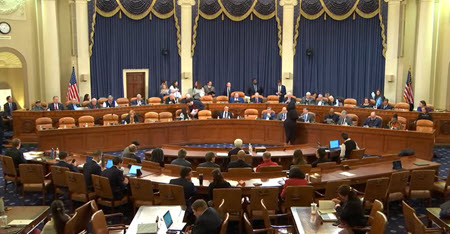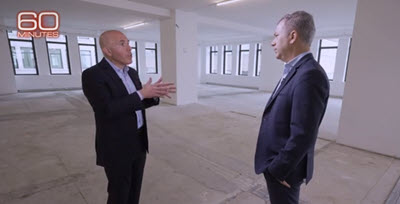
President Biden signed legislation today that averts a partial federal government shutdown by extending federal funding to March 1 and 8. The stopgap, passed by Congress yesterday, gives policymakers limited time to negotiate 12 additional bills at an agreed-upon $1.59 trillion limit to fund the government through the end of its fiscal year on Sept. 30. (Associated Press, Jan. 19 | (Politico and The Hill, Jan. 18)
Stopgap Funding
Bipartisan Tax Package Advances

Sen. Wyden and senior congressional staff will discuss tax legislation with Roundtable members during The Roundtable’s all-member 2024 State of the Industry Meeting in Washington next week.
# # #

The Real Estate Roundtable has raised concerns about the negative impact that the “Basel III Endgame” regulatory proposal would have on real estate credit and capital markets, urging federal banking regulators to withdraw their proposed rulemaking to increase capital requirements for banks with at least $100 billion in assets. The Roundtable’s letter Jan. 12 outlines how the proposal would decrease real estate credit availability, increase costs to commercial and multifamily real estate borrowers, and negatively impact the U.S. economy. (Roundtable comment letter)
Industry Opposition
Fed Weighing Possible Changes

Federal Reserve officials are considering possible adjustments to key parts of the proposal, “including operational risk calculations and potential offsets for mortgage servicing,” according to the Federal Reserve’s Vice Chair for Supervision Michael Barr. “The public comment(s) that we're getting on this is really critical for us getting it right. We take it very, very seriously," Barr said. (Reuters and PoliticoPro, Jan. 9)
Wave of Impending CRE Maturities
National Media Reports Focus on CRE Pressures

Capital and credit issues facing CRE will be a focus of discussion at next week’s all-member Roundtable State of the Industry meeting on Jan. 23-24 in Washington, DC.
# # #

A “Lifetime Achievement Award” from the national publication Commercial Property Executive recognized the accomplishments of Roundtable President and CEO Jeffrey DeBoer, who spoke about current policy challenges facing the industry, The Roundtable’s evolution, and the industry’s historical effectiveness in Washington. (Watch the Jan. 18 webcast | Read DeBoer’s written comments | CPE article, Jan. 19)
Current and upcoming challenges facing the industry will be the focus of The Roundtable’s Jan. 23-24 all-member State of the Industry Meeting in Washington, DC.
# # #